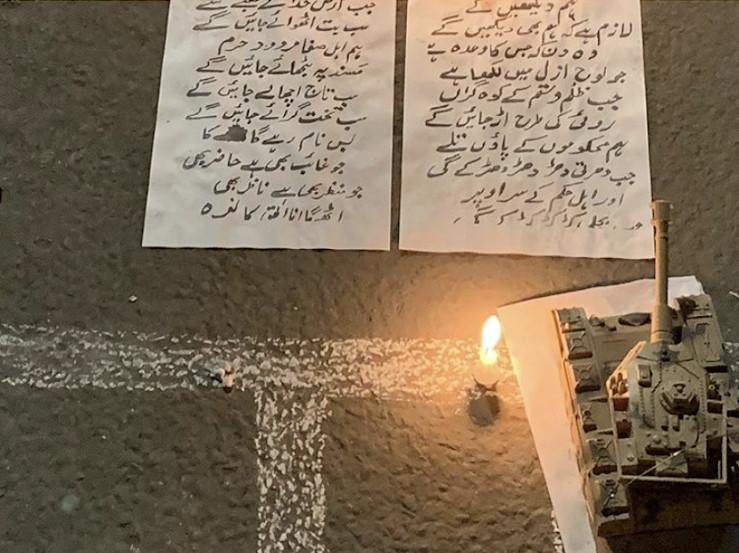
"Dubrow’s article concerns the use of Urdu poetry in the protests that have wracked India since late 2019 to early 2020"
Photo: Close-up showing toy tank with text of "Hum Dekhenge." Photo by @delhi6wala, posted on Instagram, January 30, 2020.
Jennifer Dubrow, Associate Professor of Asian Languages and Literature, recently published her article, “Singing the Revolution: India’s Anti-CAA Protests and Faiz’s ‘Hum Dekhenge,’” in positions, a public-facing journal journal dedicated to developing theoretical, philosophical, historical, and critical approaches to Asia scholarship.
Dubrow’s article concerns the use of Urdu poetry in the protests that have wracked India since late 2019 to early 2020 (where they have just been shut down due to COVID-19). The protests are in response to India’s passage on December 19, 2019 of the Citizenship Amendment Act, which proposes a religious basis for citizenship for refugees from Afghanistan, Pakistan, and Bangladesh. The new amendment proposes protections for refugees of six religious faiths but excludes Muslims, who comprise about 195 million people in India.
Dubrow’s piece highlights the role of Urdu poetry, in particular the poem “Hum Dekhenge” (We Shall See) by leftist poet and revolutionary Faiz Ahmad Faiz (1911-1984), which has become a rallying cry for the protests in India and abroad. Dubrow offers a thoughtful translation of the poem in her article:
On That Day
That day will come Yes, that day will come
That day we have been promised
When mountains of tyranny and oppression
will float away like cotton
And the earth will tremble and shake
under the feet of the oppressed
The sky will thunder and roar
on the heads of the arbitrators
False idols will be uprooted
from the Ka’ba of God’s earth
And the pure-hearted will be seated in places of honor
Thrones will be smashed
And crowns overthrown
On that day
Only the name of God shall remain
Who is both present and unseen
Who is both the observer and the perceived
On that day
The cry of “I am God!” will resound
The God that is in you and me
And the earth shall be ruled by those whom God created
The people, who are you and me-America, January 1979